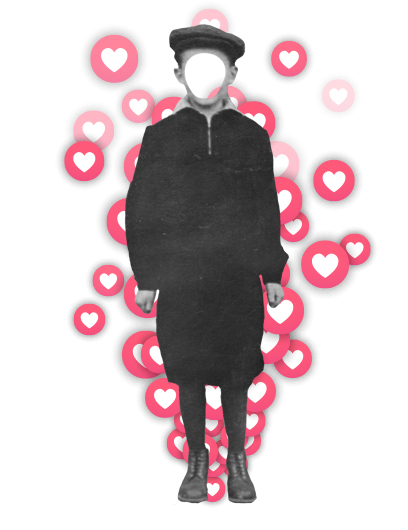
Introduction
The discussion with my therapist today was centered on my childhood experiences and how it affected my understanding of the world today. We made a breakthrough on how the childhood traumas I had shaped me.
I’ve never felt safe, even today, even though there’s nothing to afraid of, yet the sense of safety never occurred in me. That is because my childhood traumas made me feel ashamed, odd, less, and threatened. Which to this day is still covering my subconscious wherever I go and whatever I do.
We also discussed how those traumas made me shut myself emotionally. When I was a child, I coped my experience by shutting down emotions to avoid feeling bad, and this act comes with cost. The cost is that I don’t feel the good either, which can be expanded to the not knowing what I want in life because how could I know what I want if it didn’t make me feel good at the first place?
A therapist is without a compass

What I do to measure the good or the bad is from the general vibes of the communities around me. I consider the people around me as a moral compass or a measurement tool for the quality of any behavior or product.
Yet, this practice is drastically wrong to obtain, eventually I will be imitating the people around me unconsciously and lose the thing I’m fighting for the most. Myself.
This understanding came to me like a mystical epiphany. How many people are practicing the same behavior? How many of us is measuring themselves to other people? Aren’t we all going to end up like everyone else if we insist on keeping this going?
It is ideal to study and observe the people around us, to learn from their successes and mistakes, to measure our logical and creative outputs with theirs to get an idea how good or what is missing in our products. Yet, measuring is a silver lining practice, if we are not aware of ourselves, eventually it will end up as a personal comparison, and I can’t emphasize enough how toxic that will be in our daily lives.
Why do we go to a therapist in the first place? To get a perspective, a feedback, an understanding to our circumstances and the cycles of our behaviors. Yet, the therapist isn’t the solution to our problems, not even the North Star to navigate our path with to reach our destinations. The solution and the compass lays within us.
Why Do We Care If Someone Unfollowed Us?
Do you find yourself obsessed to know who unfollowed you? Do you scroll up and down in your followers list to spot the missing person? Ok I dramatize this obsessiveness a bit, but you get the point.
Why are we affected by our followers number? Why do we feel happy when the count goes up? Why are we even bothered when it goes down?
Our followers count is another measurement tool we use. We measure our work or personal life by the amount of followers and interactions. Yet, eventually this will turn into a personal stigma that we overly obsess about, we validate our work or personal stories by counting the numbers on the tiny screens of ours.
This is a pure example of a measurement that turns into a personal comparison and the need of validations.
Why do we seek validations in the first place?
The need of validation is hard wired in our brains, it is a core tool we obtained the day we were born. Validation helps us to learn from our parents, our communities, and the objects around us. Validation is the main suspect for acquiring certain behaviors, beliefs, routines, and the list is virtually endless here.
For example, if I’m practicing a certain belief, and I gained approval from people that I wanted to belong to in the first place, that is validation, and now I will keep practicing on that belief to sustain the validation.
How many practices and hobbies were developed in the first place based on the need of validation? Or the acquisition of one?
I’m not here to demonize the idea of being valid, but I’m here to highlight that validations can be our enemies if our practices doesn’t match with our values or visions.
Awareness is the answer
We don’t have to be perfect, it’s ok to make mistakes and get in trouble every now and then, and to make bad decisions to understand our needs.
By practicing on elevating our awareness, we will immediately spot our behavior cycles and where they are leading us, why we make certain decisions or why we keep practicing the same habits.
By awareness, we will be able to understand and buffer the time between the trigger and the action that follows. If we are seeking validations in the wrong places, or behaving in a way that doesn’t match our ideals, awareness will safeguard us from doing any of that by knocking our consciousness doors before we do any of that.
Let’s ask ourselves before we do anything, why are we even doing it in the first place?

